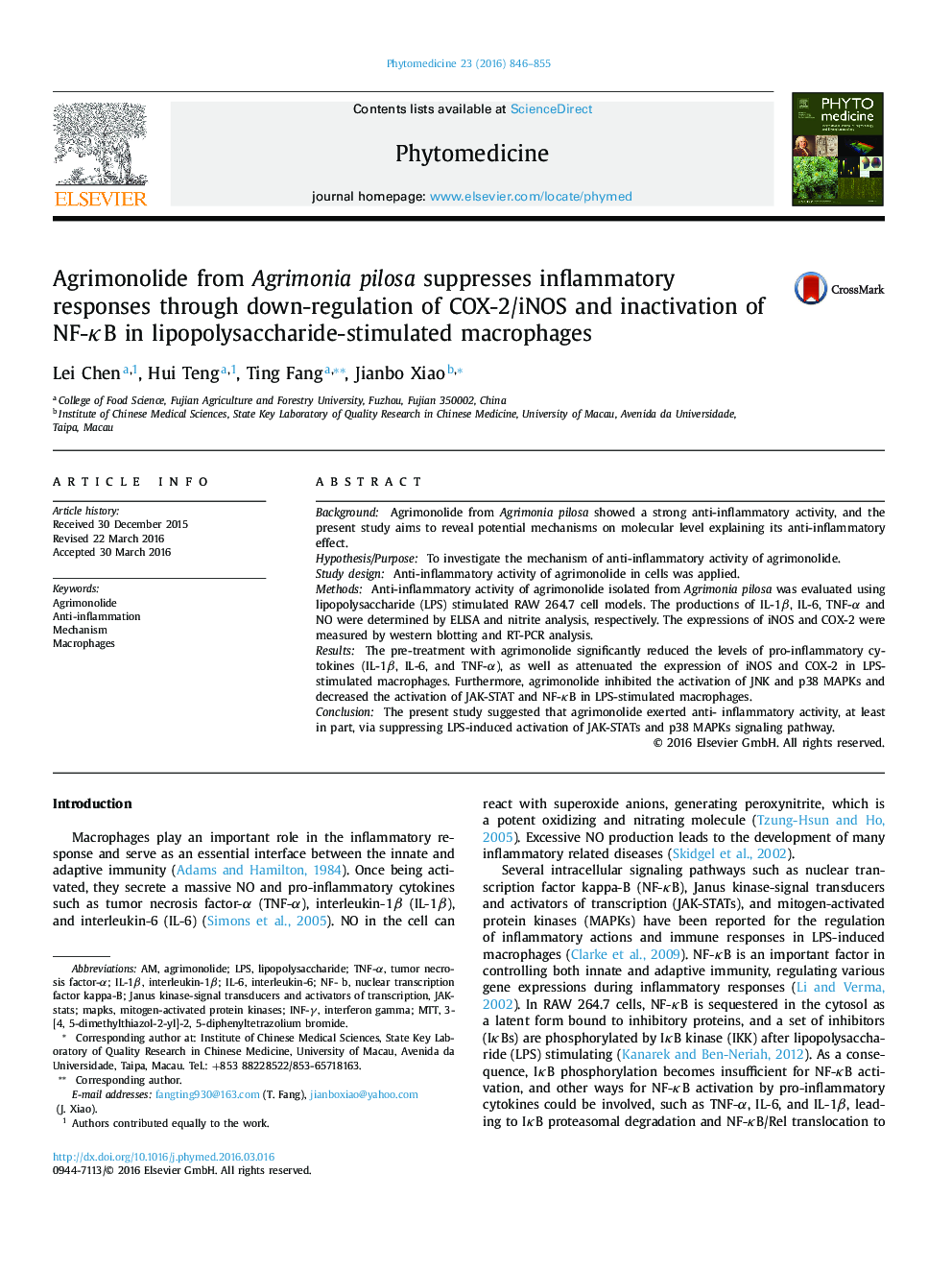| کد مقاله | کد نشریه | سال انتشار | مقاله انگلیسی | نسخه تمام متن |
|---|---|---|---|---|
| 2496249 | 1116116 | 2016 | 10 صفحه PDF | دانلود رایگان |

BackgroundAgrimonolide from Agrimonia pilosa showed a strong anti-inflammatory activity, and the present study aims to reveal potential mechanisms on molecular level explaining its anti-inflammatory effect.Hypothesis/PurposeTo investigate the mechanism of anti-inflammatory activity of agrimonolide.Study designAnti-inflammatory activity of agrimonolide in cells was applied.MethodsAnti-inflammatory activity of agrimonolide isolated from Agrimonia pilosa was evaluated using lipopolysaccharide (LPS) stimulated RAW 264.7 cell models. The productions of IL-1β, IL-6, TNF-α and NO were determined by ELISA and nitrite analysis, respectively. The expressions of iNOS and COX-2 were measured by western blotting and RT-PCR analysis.ResultsThe pre-treatment with agrimonolide significantly reduced the levels of pro-inflammatory cytokines (IL-1β, IL-6, and TNF-α), as well as attenuated the expression of iNOS and COX-2 in LPS-stimulated macrophages. Furthermore, agrimonolide inhibited the activation of JNK and p38 MAPKs and decreased the activation of JAK-STAT and NF-κB in LPS-stimulated macrophages.ConclusionThe present study suggested that agrimonolide exerted anti- inflammatory activity, at least in part, via suppressing LPS-induced activation of JAK-STATs and p38 MAPKs signaling pathway.
Agrimonolide from Agrimonia pilosa showed a strong anti-inflammatory activity. Figure optionsDownload high-quality image (102 K)Download as PowerPoint slide
Journal: Phytomedicine - Volume 23, Issue 8, 15 July 2016, Pages 846–855